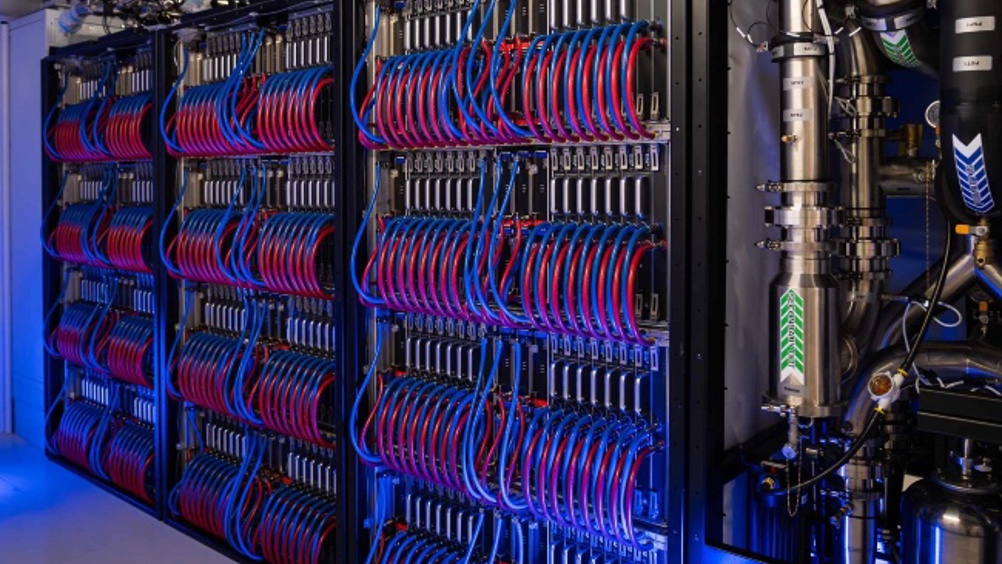Developed by Bristol University in partnership with HPE and NVIDIA, the supercomputer is said to be 100,000 times more powerful than a typical laptop. It was built using HPE’s Cray EX supercomputer platform and 5,448 NVIDIA GH200 Grace Hopper Superchips.
Isambard-AI also features nearly 25 petabytes of storage and uses direct liquid-cooling to improve energy efficiency and reduce its overall carbon footprint. It’s claimed the supercomputer will enable academics and industry to make discoveries in areas including robotics, big data, climate research and drug discovery.
“This is a pivotal moment for AI in the UK and the University of Bristol is proud to be at the heart of it,” said Professor Evelyn Welch, vice-chancellor and president of the University of Bristol. “We have a long history of AI research, innovation and education and now we are home to the UK’s most powerful AI supercomputer.
“Together with HPE and NVIDIA, we have delivered this remarkable national facility at pace, in just under 24 months. Due to its impressive power, working at speeds 100,000 times faster than an average laptop, we will soon see Isambard-AI deliver transformational research and breakthroughs that will ultimately improve people’s lives.”
Isambard-AI is said to be the 11th fastest supercomputer in the world and the 9th fastest for public supercomputing. Overseen by the university’s Bristol Centre for Supercomputing (BriCS), the build was completed in under two years, compared to the four or five years a computer this size would typically take to commission. Applications are now open for researchers and SMEs to use Isambard-AI, with more than 80 teams having already applied, according to Bristol University.
“Isambard-AI places Bristol at the centre of the AI revolution, spearheading AI innovation and scientific discovery in important areas such as drug discovery and climate research,” said Professor Simon McIntosh-Smith, director of BriCS.
“I’m incredibly proud of our team and how we’ve worked so closely with partners to develop this national facility which will establish Bristol and the UK as an international hub for AI research.”
